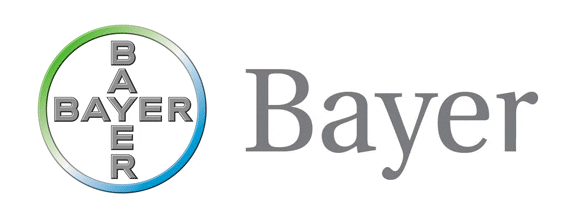Bayer

Bayer is one of the world’s leading drug manufacturers. Based in Germany, the company markets a number of popular products, including the Mirena IUD, and the antibiotic Cipro.
Bayer Today
Headquartered in Leverkusen, Germany, Bayer has more than 280 worldwide subsidiaries, including:
- Bayer HealthCare: Pharmaceuticals, nonprescription medications and medical devices.
- Bayer CropScience: Crop protection and pest control.
- Bayer MaterialScience: High-tech polymers.
Bayer currently employs more than 118,000 around the globe, and has established its presence in North and South America, Europe, Asia, Africa, Australia and New Zealand.
Bayer History
Bayer was founded in 1863 by dye salesman Friedrich Bayer and master dyer Johann Friedrich Weskott. In 1881, the company transitioned into a joint-stock corporation, which paved the way for Bayer to become an international chemical manufacturer and provided the financial resources to establish a pharmaceutical division. That same year, Bayer built a scientific laboratory in Wuppertal-Elberfeld, Germany. Bayer Aspirin hit the market in 1899.
In 1925, Bayer incorporated into chemical conglomerate IG Farben, and ceased to exist as an independent entity. However, that company was broken up in the wake of WWII, after the allies determined that its entanglement with the Nazi regime made IG Farben too morally corrupt. The Soviet Union seized most of IG Farben’s assets located in the Soviet occupation zone as part of their reparation payments. However, IG Farben continued to do business in the western occupation zone until 1951, when it was broken up into its original constituent companies. Bayer remerged that year as Farbenfabriken Bayer AG.
The reconstruction of Bayer played a key role in the Wirtschaftswunder, or economic miracle, that the Federal Republic of German experienced from the 1950s through the 1970s.
Bayer Product Controversies
Over the years, a number of products marketed by Bayer have been the subject of controversy and litigation. These include:
- Mirena IUD: Bayer has been named in hundreds of lawsuits by women who allegedly suffered uterine perforations and other serious injuries due to spontaneous migration of the Mirena IUD.
- Cipro: Dozens of Cipro lawsuits have been filed in the U.S. on behalf of individuals who allegedly developed peripheral neuropathy and permanent nerve damage due to their use of the antibiotic.
- Essure Birth Control: Bayer’s birth control coils have been linked to hundreds of serious adverse events, including the deaths of five fetuses and four women, prompting the U.S. Food & Drug Administration to revise its label warnings. A number of women have filed Essure lawsuits, but face preemption laws that could protect Bayer from liability in these cases. Plaintiffs claim that Bayer manipulated safety data for Essure, and assert that these laws should not apply to their cases.
- Bayer (2015) “History of Bayer” http://www.bayer.com/en/history.aspx
- BBC (2001) “IG Farben to be dissolved” http://news.bbc.co.uk/2/hi/business/1549092.stm
- FDA (2013) “FDA Drug Safety Communication: FDA requires label changes to warn of risk for possibly permanent nerve damage from antibacterial fluoroquinolone drugs taken by mouth or by injection.” http://www.fda.gov/Drugs/DrugSafety/ucm365050.htm.
- FDA (2015) “FDA’s Review of Reported Problems” http://www.fda.gov/MedicalDevices/ProductsandMedicalProcedures/ImplantsandProsthetics/EssurePermanentBirthControl/ucm452254.htm
Get the latest news and litigation updates about this case by following us on Facebook. Click the "Like" button below.
Follow Us


